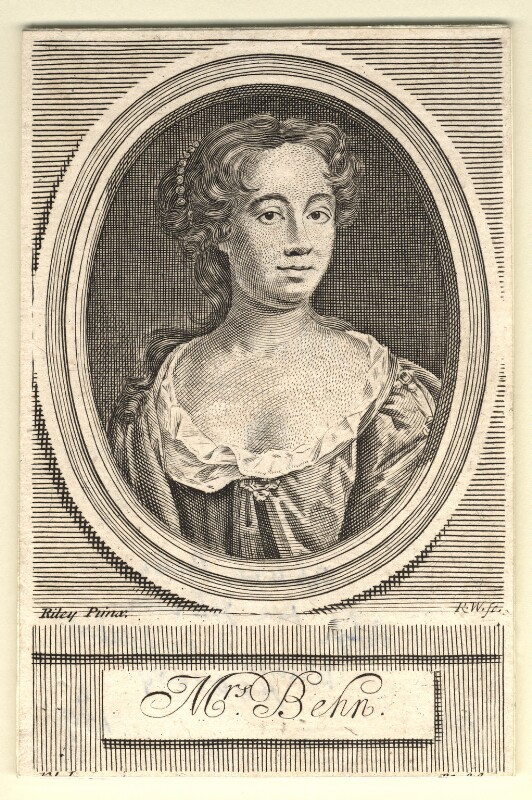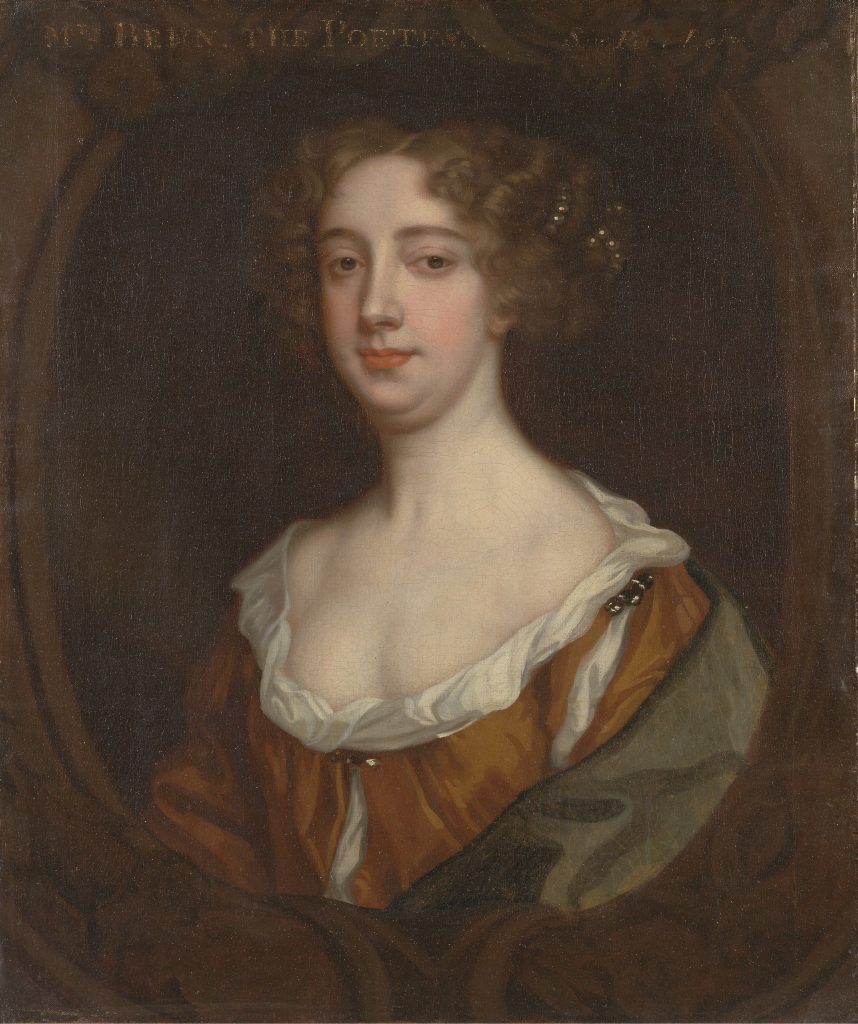A limited series on her work
Author, spy, political propagandist, Aphra Behn (1640–1689) was one of the first English women to earn a living by her pen. Set against the tumultuous backdrop of the English Civil Wars, expanding transatlantic slave trade, and settler colonialism in the Americas, Behn’s work engages with frankness and complexity a range of topics, from gender identity to political power.
This podcast celebrates the 350th anniversary of the first public performance of a work by Behn, surveying major trends across translations of romances and scientific texts, timely plays, erotic poetry, and an anti-slavery novella. Researched, written, and produced by University of Alabama undergraduates during the coronavirus global pandemic in the spring of 2021, this limited series provides the public with a primer to one of the most influential writers in English you’ve never heard of.
NB: This project was featured as part of the National Humanities Alliance’s Humanities for All series, “Making the Covert Public” (15 June 2021), and in a post for the Modern Language Association’s blog, The Wire (3 August 2021).
Content warnings
The timeliness and meaningful stakes of Behn’s work means that some of the content in these episodes merit notice, as they occasionally include descriptions of
- racial caricatures, epithets, slurs, bigotry, and other hate speech.
- rape, sexual assault, and harassment.
- graphic, explicit violence, including toward women and people of color.
- self-harm, suicide, and suicidal thoughts.
- graphic, violent death, including genocide.
Notifying audiences of content warnings is considered a best practice in the classroom as well as in journalistic settings, enabling listeners to martial their resources to engage with rather than be caught off guard and potentially harmed by sensitive content. Learn more at the Consciousness Style Guide, a hub of resources and newsletter that helps writers and editors think critically about using language — including words, portrayals, framing, and representation — to empower instead of limit.
Background
Check out these resources to learn more about Behn’s biography.

“Mrs Behn,” Robert White after John Riley line engraving, 1716, National Portrait Gallery, London, NPG D9483. 
“Mrs Behn the Poetess,” Peter Lely, ca. 1670, Yale Center for British Art, B2002.15. 
Grave headstone of Aphra Behn, Westminster Abbey, London, UK. 
“Mrs Behn,” George Scharf sketchbook 19, 21 May 1873, National Portrait Gallery, London, UK.